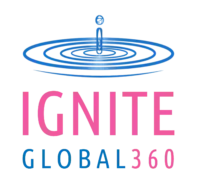Ignite Scholarship Program
At Ignite Global, we are dedicated to creating opportunities for students from specific low-income countries. Our mission is to foster a global community of passionate, committed professionals who strive to make a positive impact on the world. We believe that education is the key to unlocking potential, and we are excited to offer a scholarship program that reflects our commitment to sustainable development and personal growth. We hope this would be a way of supporting your intentions in creating an impact on your clients and the world at large.
Scholarship Eligibility
Your country of origin belongs to either of the low-income, lower-middle-income, or upper-middle-income economies.
Availability of Scholarships
Standard Scholarship of 30% tuition fee waiver for our ICF Accredited Key Programs.
Standard Scholarship of 50% fee waiver for our ICF Credentialing Mentoring Program.
Regardless of your nationality, we provide an Exceptional Significant Standard Scholarship of a 30% tuition fee waiver and a 50% fee waiver for our dedicated ICF Credentialing Mentoring Program for those who come from marginalized backgrounds.
If you are a citizen from a high-income economy yet require financial assistance in accessing quality education due to marginalized background, you have access to this significant scholarship opportunity.
Scholarship Criteria
We consider offering scholarships based on circumstances below to help address a wide range of inequities (not limited to) and ensure that ICF Accredited education becomes a more accessible and inclusive opportunity for all. See scholarship criteria here
Economic Hardship
Long Term Unemployment or underemployment
Homelessness or housing instability
Ethnic and Racial Minorities
Underrepresented racial or ethnic groups
Refugees and asylum seekers
Disability and Health Issues
Mental health challenges
Chronic illnesses
Educational Disadvantage
Historical and Systemic Inequities
Victims of systemic discrimination or segregation
Communities with historical educational underfunding
Career and Field-Specific Barriers
Lack of industry representation for marginalized groups
Barriers to entry in high-cost professional training programs
Age and Life Circumstances
Individuals transitioning from the military
Social Exclusion
Marginalized groups within their communities
Those who have faced significant social stigma
First Responders and Essential Workers’ Families
Families significantly impacted by frontline duties
Humanitarian and Social Justice Engagement
Students who have shown leadership in humanitarian efforts
Those advocating for marginalized communities
Geographical Disadvantages
Students from conflict zones or war-torn regions
Areas with limited access to educational resources
Gender and Sexual Orientation
Survivors of gender-based violence
Family and Social Circumstances
Single-parent families
Families affected by incarceration
Legal and Documentation Challenges
Stateless individuals
Individuals with limited legal rights
Environmental Factors
Communities impacted by environmental pollution
Areas with significant climate change impacts
Religious Minorities
Victims of Violence and Abuse
Victims of human trafficking
Educational Interruptions
Individuals who had to leave school due to personal or family emergencies
Students who have had extended gaps in their education
Creative and Artistic Talents
Students in areas where arts education is underfunded
Economic Hardship
Low-income families
Long Term Unemployment or underemployment
Homelessness or housing instability
Geographical Disadvantages
Students from rural or remote areas
Students from conflict zones or war-torn regions
Areas with limited access to educational resources
Ethnic and Racial Minorities
Indigenous populations
Underrepresented racial or ethnic groups
Refugees and asylum seekers
Gender and Sexual Orientation
LGBTQ+ individuals
Survivors of gender-based violence
Disability and Health Issues
Physical disabilities
Mental health challenges
Chronic illnesses
Family and Social Circumstances
Orphans and people grew up in foster care
Single-parent families
Families affected by incarceration
Educational Disadvantage
Lack of access to education
Legal and Documentation Challenges
Undocumented immigrants
Stateless individuals
Individuals with limited legal rights
Historical and Systemic Inequities
Descendants of slavery or colonialism
Victims of systemic discrimination or segregation
Communities with historical educational underfunding
Environmental Factors
Students affected by natural disasters
Communities impacted by environmental pollution
Areas with significant climate change impacts
Career and Field-Specific Barriers
Underrepresented groups in specific careers (e.g., STEM fields)
Lack of industry representation for marginalized groups
Barriers to entry in high-cost professional training programs
Religious Minorities
Victims of religious persecution or discrimination
Age and Life Circumstances
Adult learners returning to education
Individuals transitioning from the military
Victims of Violence and Abuse
Survivors of domestic violence
Victims of human trafficking
Social Exclusion
Individuals experiencing social isolation
Marginalized groups within their communities
Those who have faced significant social stigma
Educational Interruptions
Students whose education has been disrupted by crises or disasters
Individuals who had to leave school due to personal or family emergencies
Students who have had extended gaps in their education
First Responders and Essential Workers’ Families
Children of first responders or essential workers
Families significantly impacted by frontline duties
Creative and Artistic Talents
Individuals pursuing careers in the arts from marginalized communities
Students in areas where arts education is underfunded
Humanitarian and Social Justice Engagement
Individuals actively involved in social justice work
Students who have shown leadership in humanitarian efforts
Those advocating for marginalized communities
Important Notice
You can only qualify for scholarships under one of the conditions based on either low-income status or marginalized status with a standard and maximum of 30% tuition fee waiver for our ICF Accredited selected programs or a maximum of 50% fee waiver for our dedicated ICF Credentialing Mentoring Program for Scholarship Applicants.
Other discounts or special offers cannot be combined with scholarship offers.
When a referral qualifies for and receives a scholarship, no referral commission will be granted for that specific referral.
Regardless of all the mentioned criteria, the final decision to offer a scholarship rests solely with Ignite Global. This decision is based on Ignite Global’s assessment of the information you provide, your appeal, and the referrals included in your scholarship application.
In the event that a scholarship is not granted, Ignite Global does not bear any liability to share the reason for the denial of the scholarship application. We reserve the right to withhold specific details regarding the assessment process and the outcome.
